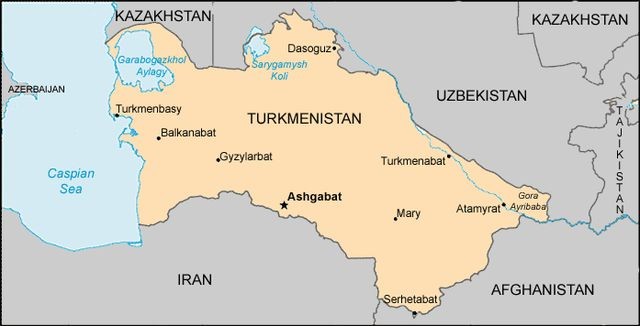ASHGABAT (TCA) — People in hydrocarbon-rich Turkmenistan have experienced another pinch from the country’s economic downturn as prices of gasoline have increased by 50 percent, from 1 to 1.5 manats per liter, starting from 1 February, the independent news website Chronicles of Turkmenistan reports.
According to the website, following the price increase, taxi drivers have increased their fees. Now privately-owned taxis are charging a fee of 7-8 manats compared to the previous fare of 5 manats for the same distances across Ashgabat.
Fees for intercity destinations have also seen a considerable increase. A fee of 40-45 manats was charged by taxi drivers to get from Ashgabat to Mary while passengers now have to pay 60-70 manats.
The increased gasoline prices are likely to result in a new price hike for groceries and other goods in the country.
In the meantime, the price for flour has gone up in Turkmenistan and residents are standing in queues to buy it.
Correspondents of Chronicles of Turkmenistan report that the price of Iran-produced flour went up from 76 to 84 manats per a 50-kilo sack.
The price of domestically-produced flour in state-run stores with government-regulated prices increased by 1 manat only and amounts to 47 manats per sack. Due to this relatively affordable price, residents stand in line to stock up on merchandise for future use. Especially large queues of those willing to buy flour are recorded in rural areas.
In early December Dashoguz region experienced a shortage of flour and in mid December there was a deficit of chicken eggs in Ashgabat.
In the run-up to the New Year, President Gurbanguly Berdymukhammedov instructed to ensure “abundance of food products” in the country and on 9 December he signed a decree on establishing the State Food Safety Commission.








